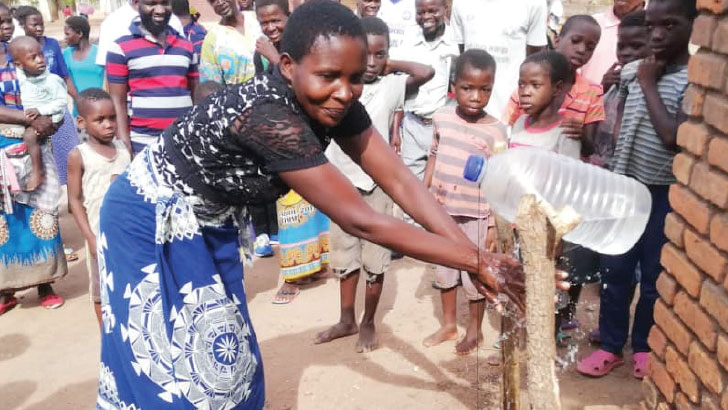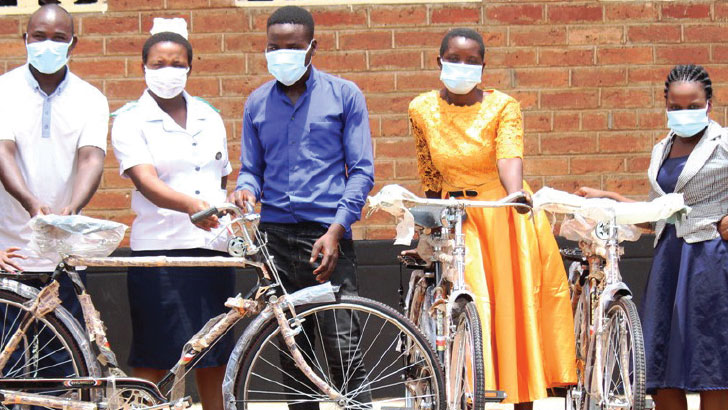The Hunger Project has intensified water, sanitation and hygiene (Wash) interventions in Nsanje District to help people prevent waterborne diseases during the rainy season.
In an interview yesterday, the organisation’s Nsanje district nutrition coordinator Robert Manda said the interventions are targeting about 47 675 households in the district’s nine traditional authorities.
A woman demonstrates how to use a toilet’s water facility
He said the organisation is encouraging people to have toilets with washing facilities and practice personal hygiene, including washing hands regularly with soap.
“So far, about 18 229 households have toilets,” he said.
Susan Mbewe of Khavala Village in Senior Chief Mlolo in the district, said the organisation opened their eyes to the importance of living in a clean environment.
She said: “Before the project, we used to live in an untidy homes and some people defaecated in bushes due to lack of toilets.
“We are now encouraging others to practise hygiene to prevent waterborne diseases such as diarrhoea.”
Another community member, Gift Lankeni from Brighton Village in Senior Chief Mbenje, said the Wash project is also useful in the fight against the Covid-19 pandemic.
“For example, washing hands regularly with soap is one of the preventive measures against the pandemic,” he said.
Chief Nyachikadza commended the organisation for implementing Wash project in his area, saying his subjects are now free from waterborne diseases.
Nsanje district health environmental officer Fred Minyaliwa said people should also ensure that they treat water before drinking.
The Hunger Project is implementing a five-year Scaling Up Nutrition Project with a Wash component with funding from the German Bank, KFW through Unicef.
The post NGO in sanitation drive in Nsanje appeared first on The Nation Online.
 Moni Malawi
Moni Malawi 

